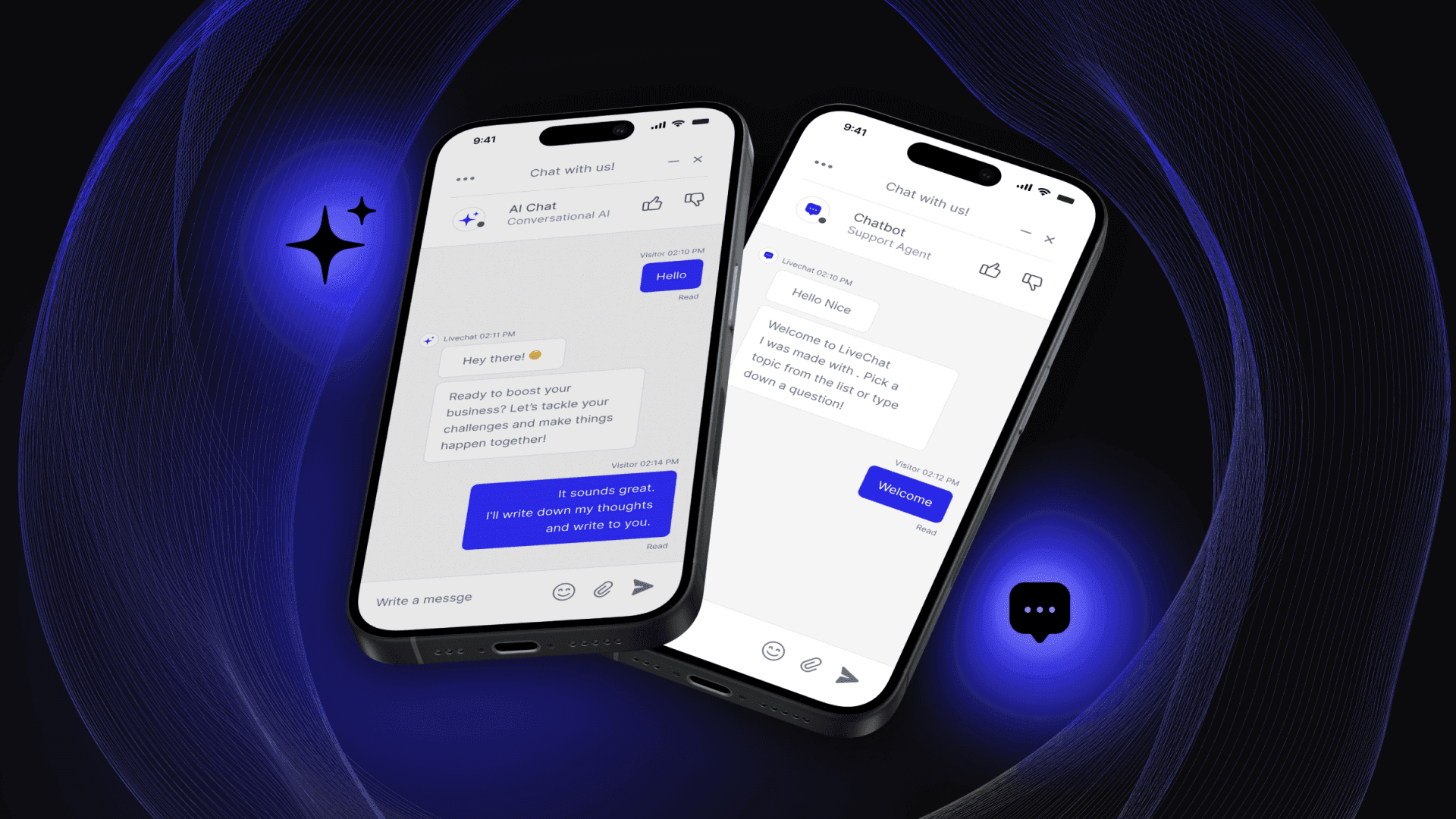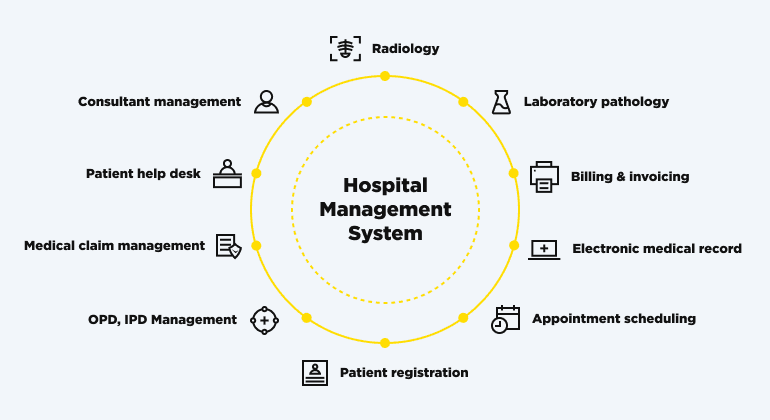Do you remember your first time when you used a voice assistant? Was it setting an alarm clock? Or maybe asking about the weather? How did it feel? I bet you perceived it as a small glimpse into the future. Well, fast forward to nowadays, voice assistants are almost everywhere. Cars, kitchens, offices, and even hospitals. Surprising or not, conversational AI in healthcare is gaining traction and making a big difference.
As you might already know, hospital management systems benefit significantly from AI technology. But I’ve got some news - it’s gone further than that. And recently, AI has been offering even more advanced solutions.
There’s no denying how essential artificial intelligence is for the healthcare industry. According to the report by Verified Market Research, the market size of healthcare virtual assistants was estimated at 677,93 million US dollars in 2023. Moreover, the forecast says it is expected to reach 9295,63 million US dollars by 2030 with a CAGR of 33,77% (between the forecast period 2024-2030).
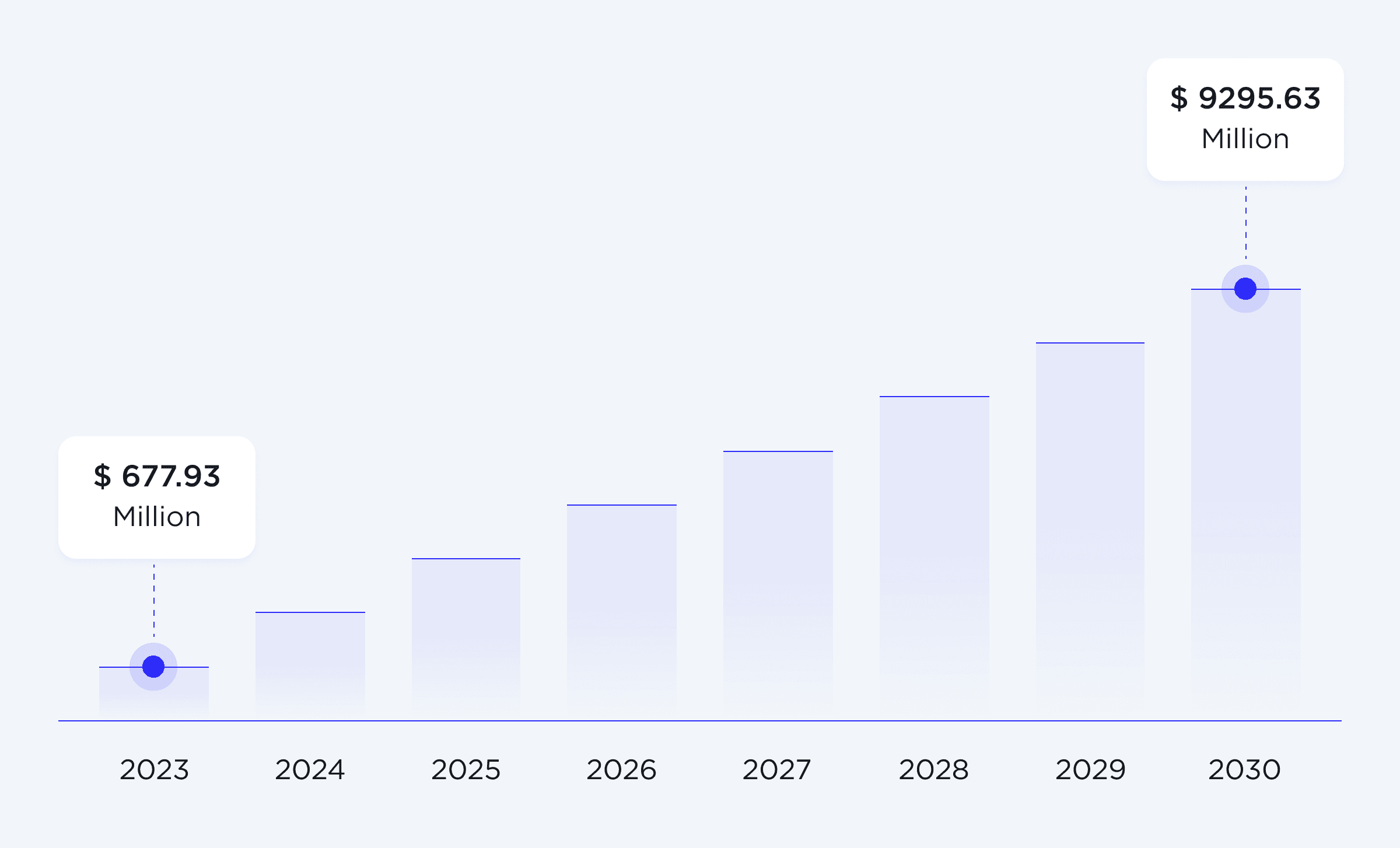
In this article, I’m going to dive deeper into real-life applications of healthcare voice assistants. But before, let’s make sure we’re on the same page.
How Do You Define Voice Assistants?
So, what are those AI voice helpers in healthcare? They are AI-powered tools that have the features needed to understand and respond to spoken commands. Imagine it as Google Assistant, Siri, or Alexa, but tailored for the healthcare industry, with improved accuracy, high-level security, and integration options.
Why are voice assistants becoming so widely adopted in the medical field?
Now that we’ve defined what they are, let’s answer the next crucial question: “Why is everyone in medicine so obsessed with them?” The answer is simple. Finally, hospitals and clinics worldwide have discovered that an AI voice assistant for healthcare isn’t just convenient. It goes deeper:
- saves time and resources,
- reduces errors,
- improves patient experience,
- decreases no-shows,
- optimizes medical professionals’ time,
- boosts revenue for clinics and hospitals.
There are many things they let you do, from recording patient notes (notice that you do that even without touching a keyboard) to guiding someone through post-surgery care. The possibilities they offer are huge and evolving.
What benefits of voice technology in healthcare should you expect?
So, now you know why conversational AI healthcare solutions are seeing such a rapid adoption. But why is it catching on so fast? Well, there are some key reasons for that.
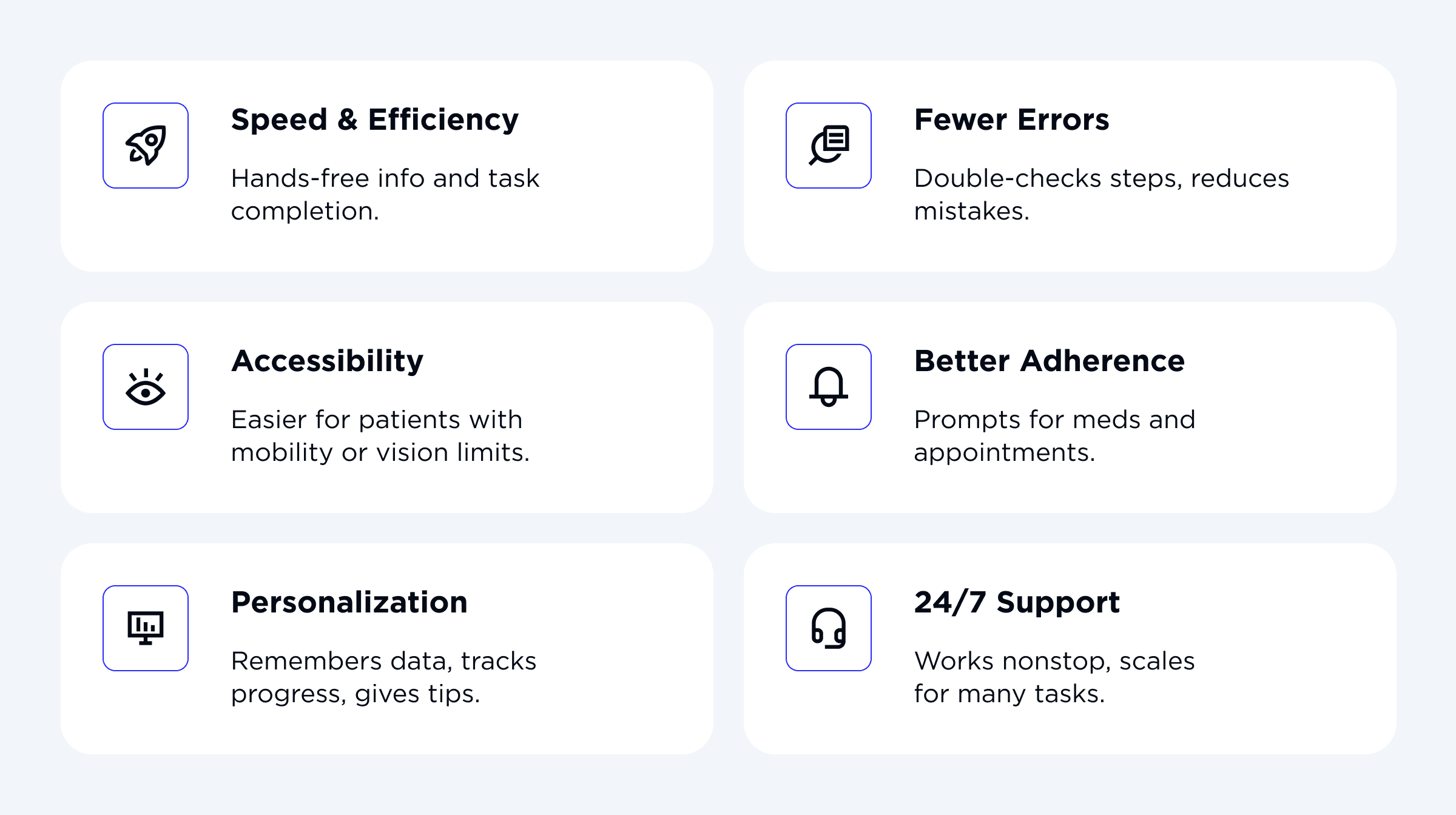
- Speed and efficiency
Healthcare professionals can get information about patients and complete tasks hands-free. - Accessibility
Hospital systems become more accessible for patients with limited abilities (mobility or vision). - Personalization
Over time, voice AIs can remember patients’ info and preferences, track their progress, and even provide recommendations. - Fewer errors
By double-checking all steps and guiding doctors through protocols, voice AI can reduce mistakes in documentation and medication management. - Engagement and adherence
It’s easier to make sure patients come to appointments and follow medication schedules thanks to voice prompts and reminders. - Availability and scalability
Without coffee breaks and fatigue, voice assistants can handle many tasks simultaneously, providing 24/7 support for patients and staff.
So, now we’ve reached the most important part - how voice assistants in healthcare are changing the game? Let me break down the top use cases in terms of improving patient care, streamlining professionals’ workflows, and simplifying admin tasks. Ready? Buckle up and let’s roll!
Enhancing Patient Care with Voice Assistants
When I mention AI technology use cases in the medical sphere, I mean its potential applications in terms of customer service, medical workers’ empowerment, and healthcare providers’ efficiency. Ready to explore more?
Voice-guided monitoring and support
There are patients recovering after surgery, sometimes even at home. In the past, they had to wait for a call or fill in long (really long) forms. Nowadays, using this or another AI chatbot or app, they can simply use a voice assistant. For example, “My temperature is increasing”, “I’m feeling discomfort in my left arm”, or “The scar is bleeding”. Thanks to advanced Gen AI, the system records it and provides immediate guidance or flags for a nurse or a doctor if needed. The best part? Some setups allow for connecting them to wearable devices.
Medication reminders and health tips
How many times have you missed taking your pills or vitamins? Exactly! Conversational AI in healthcare makes sure patients take the right medication at the right time (sometimes it is life-saving, to be honest). Patients receive reminders like “It’s 10 pm, time for your sleep medication.” Such reminders could also incorporate health tips, for example, about drinking enough water or about taking breathing exercises.
Virtual companions for elderly and chronically ill patients
Loneliness is a hidden health problem that significantly affects mental health, particularly among elderly patients. We often say that AI chatbots are just about handling tasks. However, technologies have gone a long way. There’s a solution like Everfriends, which is powered by emotion-aware AI (it is called Hume AI). It significantly helps reduce loneliness, especially among elderly or dementia-affected patients. What is more, the review by NIH after analyzing 13 studies revealed that about 85% of reported users experienced reduced loneliness when voice assistants were personalized. Of course, they can’t replace human interaction, but chatbots can bridge the gap by being there for them.
Voice assistants in telemedicine consulting
Even though telemedicine has gone a long way, some less tech-savvy patients may find it difficult to navigate apps and fill out forms. Drum roll! And again generative AI tech! What does it help simplify? Guiding patients through pre-concultation questionnaires, booking appointments, checking prescriptions, asking to call the right doctor, etc. Even a simple voice assistant in healthcare makes a huge difference.

Bring AI voice assistants to your clinic!
CONTACT USEmpowering Healthcare Professionals
People are at the center of every organization. Medical institutions are not an exception. And conversational AI in healthcare helps to make it even clearer by freeing doctors and nurses’ time for focusing on their patients and career growth.
Hands-free documenting and note-taking
Everyone loves the implementation of electronic health records (EHRs), but everyone hates spending hours entering data into them. Even while examining patients, medics can dictate updates in real time to voice assistants and look at the patient, not at a screen.
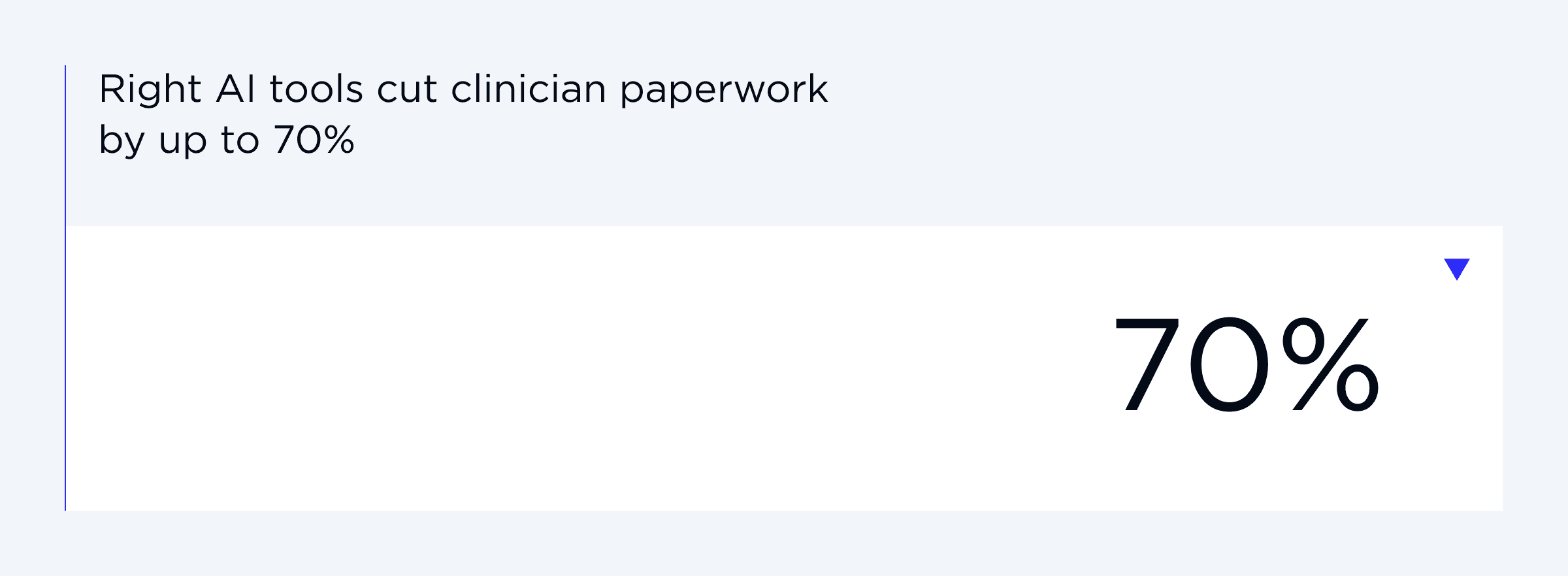
Accessing medical records via voice
Doctors and nurses can just send a quick command like “Show me Michael Smith’s last lab results,” and thanks to machine learning algorithms and some magic, they can see the file immediately. It’s especially important when every second counts.
Voice-driven clinical decision support
Imagine a patient asks for advice, but a doctor, of course, cannot remember everyone’s history. So, with a quick voice command, they can not only get answers but also accurate suggestions. When integrated with databases, it’s all about evidence-based support.
Workflow optimization in emergency situations
Doctors and nurses don’t have time to click through menus in high-pressure moments. A healthcare voice assistant changes the game in these cases. Starting timers, ordering tests, requesting additional staff, etc. Hands and eyes remain only on the patient.
Streamlining Administrative and Operational Tasks
Appointment scheduling and reminders
No more hold times or missed confirmations. When you adopt voice AI, it can take calls, schedule appointments, and send reminders to patients, reducing no-shows by up to 70%.
Managing inventory and supply requests
It’s a nightmare to run out of gloves, PPE, or syringes when it’s critical! With voice integration, just say what you need, and the supply system gets the request instantly.
Integrating with Hospital Information Systems (HIS)
Connected to HIS platforms, conversational AI technology in healthcare can update patient records, pull data, or send alerts. And you know what? All without manual input!
Automating front desk interactions
This is something interesting - imagine using voice-powered solutions to greet visitors, check them in, and guide them to the right department. It can reduce congestion at reception a lot!
| Task | Before AI | After AI |
| Appointment scheduling | Waiting on hold, manual confirmations, high no-show rates | Automated confirmation via voice, reduced no-shows |
| Inventory requests | Manual inventory logging, delays in supply orders, risk of running out of items during critical times | Voice-triggered requests processed instantly, faster restocking, better supply availability |
| HIS updates | Manually enter or search data, possibility of human errors | Voice commands update or receive patient records instantly, reduce human errors |
| Front desk check-in | Long reception lines, overwhelmed staff, delays in guiding visitors | Voice-driven greetings and check-ins, smoother visitor flow |
Should You Consider Any Challenges and Considerations?
Never forget that even the smartest solutions come with challenges. Generative AI has developed dramatically. Even though machine learning algorithms and NLP are working things out perfectly well, there are some hurdles to consider with healthcare voice assistants.
Data privacy and HIPAA compliance
Security always first! Voice AI must comply with strict data protection standards like HIPAA in the U.S. and GDPR in Europe. All conversations have to be encrypted, stored securely, and accessible only to authorized personnel. Unfortunately, according to Hyro’s Voice of the Patient survey report, it was revealed that still 33% of patients are worried about the risks AI poses to patient privacy.
Accuracy and context understanding
There’s no room for misheard medications or misunderstood symptoms. It can have really serious consequences. Consumer devices and medical voice assistants differ significantly here. Trust only experienced developers to develop your gen AI voice tools, who are reliable and combine speech recognition with natural language processing (NLP), crafted specifically for medical terminology.
Integrating with existing systems
EHRs, HIS, or any other workflows. No matter the platform, healthcare voice assistants must work smoothly with them. First of all, it should work well for staff not to get frustrated and overloaded when they are supposed to be at ease.
Voice AI in Healthcare: Future Outlook and Innovations
As I’ve already mentioned, modern-day solutions are just the beginning. Due to rapid advancements in machine learning and natural language processing, where is conversational AI in healthcare heading?
Multilingual and multimodal interfaces
Healthcare is going global, so, obviously, patients speak different languages. Thanks to new trends, future voice assistants are to be multilingual and switch between languages (even mid-conversation). They will also combine voice with visuals, e.g., for providing instructions.
AI-driven personalization
Like ChatGPT can remember your preferences, the next-generation voice tech will do the same with patients’ options. It will include reminders, preferred tone, type of health advice, and the like. Most importantly, they will adapt various interactions accordingly.
Benefits for remote and rural healthcare
The problem of rural areas with limited access to doctors can finally be solved. Conversational AI healthcare solutions can be used to guide patients through symptom check, connect them with telehealth services, and offer first-aid instructions.
Of course, these are just the main future trends you should expect. You might ask what else is waiting for us ahead? Let’s explore more in the picture below.
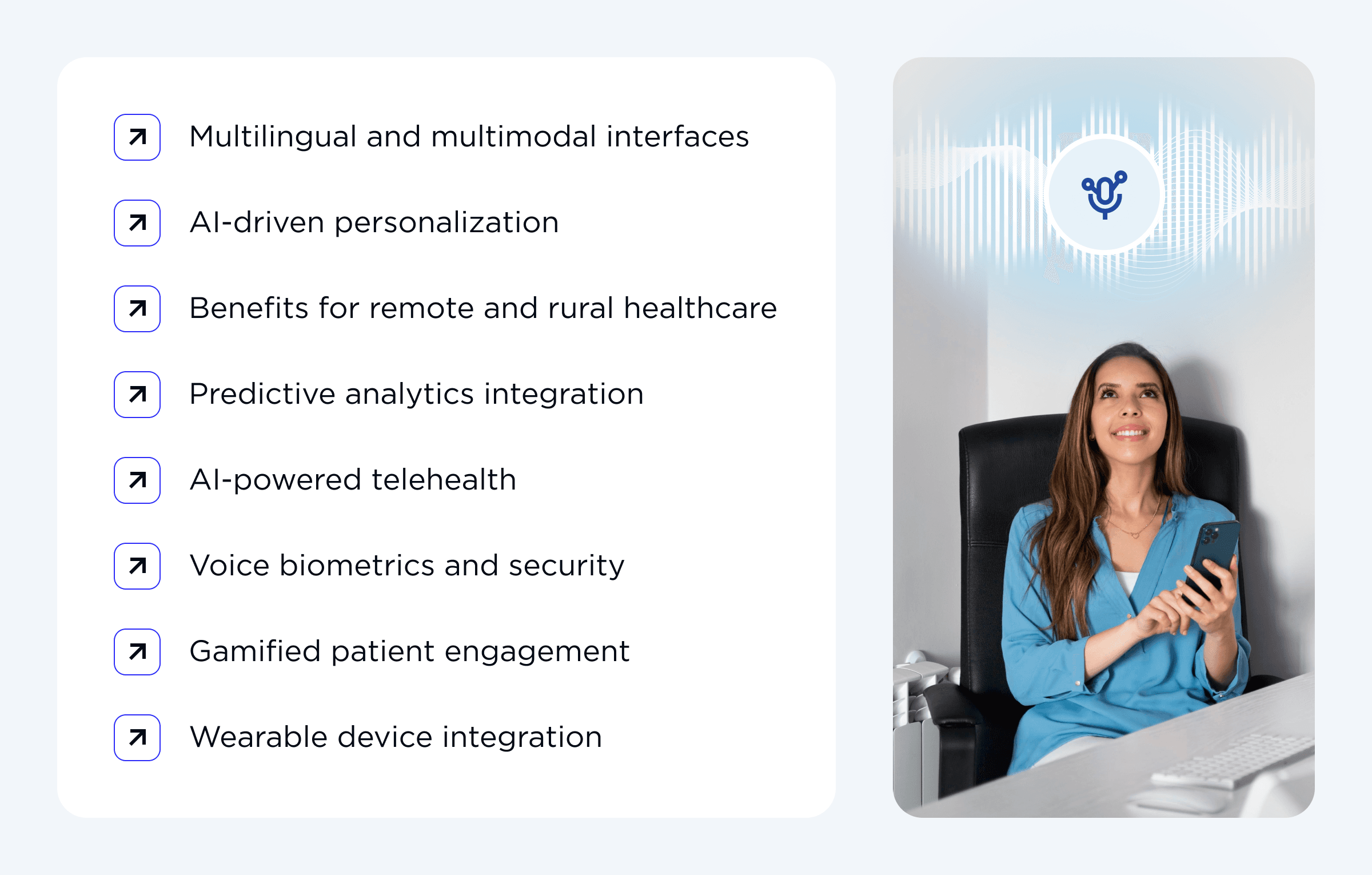
Wrapping Up: Voice AI in Your Medical Facility
So, after all, would you like to implement an AI voice assistant for healthcare at your medical institution? I’m sure you’ve understood so far that they are not “nice to have” anymore. What you get is improved patient care, satisfied healthcare professionals, efficient operations and processes, and accessible services.
The beauty of these solutions lies in a perfect formula:
- independence for patients,
- focus on people for doctors,
- top-tier service for hospitals.
Are you ready to implement this formula in your organization? Whether in a big city hospital or a remote one, the human voice is always the most powerful. However, with the help of a dedicated team like OTAKOYI and artificial intelligence, you can get one of the most powerful medical tools ever existed.




